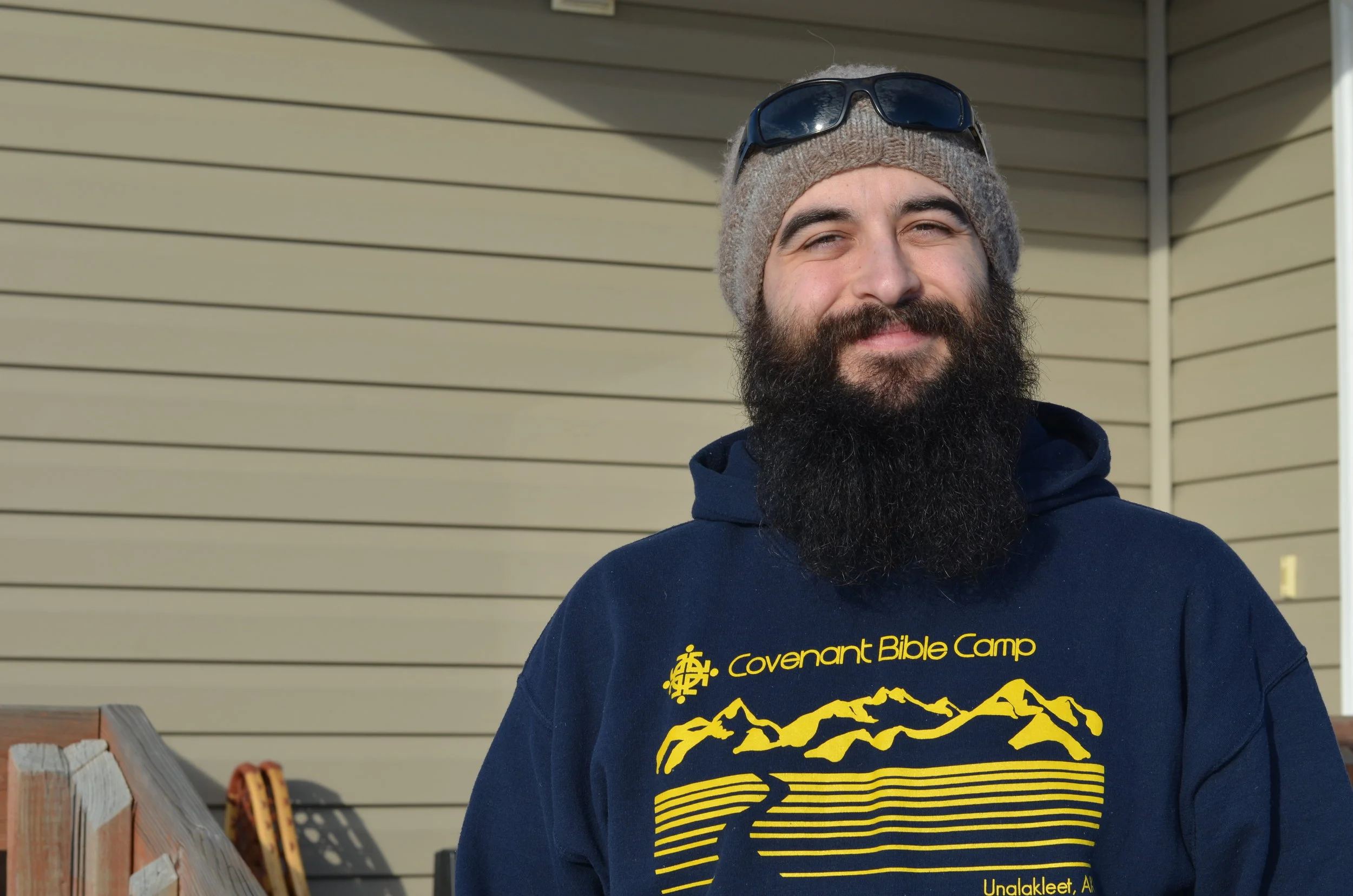Brad Webster
unalakleet
Webster outside his home in Unalakleet.
Building Trust in a Community as a newcomer
Even another kind of example that [my wife Kami and I] experienced this summer, you know, in looking towards ... moving [from one village] to a new village. ... Something that we’ve kind of talked about, Kami and I have talked about a lot: the whole issue of racism and historical trauma, that happens. But then when we go into a place, we embody that, or represent the most negative aspect of that to some people. That they see us, and they don’t see potential for engaging the community. They see the potential for harming, or taking away from their culture. And that’s not everybody, but there are people, that that’s gonna be their first response. Instead of welcoming us, they're gonna be wary of us. And as teachers, that becomes a many-year process. That some places, you’re not gonna be-- it takes-- it’ll take more than five years to become that insider. ... Even after one year as a teacher: "Oh, well you’re gonna come back next year? Oh, okay," and then [community members] start to talk to you more. And then, "Oh, you guys are coming back a third year; oh, okay, well then we’ll embrace you even more." And then like, "Oh, you guys call this home."
First impressions
My first impressions of the village seem different even than my first impressions of [[the summer Covenant Bible] camp [upriver from Unalakleet], and trying to make those two separate is tough. But my first impression of being in that place, I guess, was being overwhelmed with how giving people were. Having people offer to let us use four-wheelers, and go: "Oh, there’s our favorite place to go pick blueberries; go for a three mile ride down that way." And: you don’t know me; you’re gonna trust me to take your four-wheeler for the whole day, and just use it? And, "You’re not from here; come over, we’re going to have king crab tonight and salmon," like, "Sit at our table, join us." And then getting to know even more people, seeing what a lot of people would say-- the lack of resources, and lack of material things-- just how people had very little, but were willing to share so much.
Appreciation
Another word that I would [use to describe Alaska], [and] would take probably more explanation would just be: culture. … The culture of the village; the culture of the people; the beauty of the language and the beauty of the traditions and the heritage and the knowledge that’s been passed down. And wanting to learn from it and respect it, but still in a way that respects the people to continue to be who they are. Some kind of a weird balance, of an outsider coming in and wanting to see and experience those things, without imposing or changing the experience for them.
"I recognized early on when I moved up, that there is such this family culture, connection [here]. And ... realizing that that’s what’s so present, that is what has drawn me to this place. But in the drawing me to this place, has taken me away from my family, my culture, my traditions. … Seeing the value ... and wanting to be a part of that, but to be a part of that, I have to be away from my family, which is a challenge."
resisting the reverse migration
Something that I’ve been very intentional about for the last five years, is what I call "home." A lot of the expectation is that Christmastime, all the teachers go, quote unquote, home; they go fly away. I had a student-- he was a student this year-- be like, "Yeah, the teachers are just like birds." And I’m like, "What do you mean, teachers are just like birds?" "They fly away in the spring and they fly back in the fall. It’s just the reverse of migration." It’s like, "Okay." But over Christmastime this last year, people asked us, "So, are you guys going to go home for Christmas?" And I said, "Yeah," and they’d say, "Oh, great, where are you going?" And I’d say, "Here!! And they’d say, "Oh, no, aren’t you guys-- you said you were going home." I’m like, "Yeah! We’re here!" They couldn’t wrap their brain around it. Kids would ask us questions like, "Where’s your house?" And I’d be like, "You know where our house is; our house is by the river." "No, where’s your other house?" "I don’t have another house." "Yes you do! Where’s your other house?" "No, that’s my house." "But where do you go when you're not here?" "...We don’t go anywhere; this is where we are." "No…!" There’s so many examples of people treating the village as a stop, and want the benefits of the community, want the benefits of all the cultural things; but almost as a novelty, to take away as their story, as their experience, and share that back "home." ... And defining what being a part of the community is, and what helping is... because our definition of helping might be different from the community's definition of helping.
